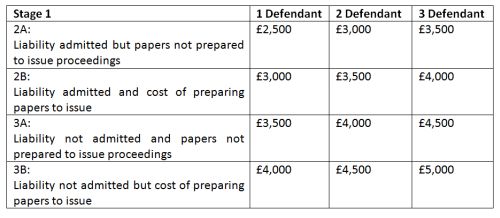The Civil Justice Council (CJC) has released its final report on fixed costs in Noise Induced Hearing Loss (NIHL) claims.
The CJC report is complementary to Lord Justice Jackson's proposal to include NIHL claims in the fixed recoverable costs regime. Lord Justice Jackson had sight of the working party's proposals when conducting his review of fixed recoverable costs, and the CJC report should be read in conjunction with his review.
Lord Justice Jackson's proposals to extend fixed recoverable costs were expected to be implemented on 1 October 2018; however they are now unlikely to come into force until April 2019. Brexit will be the main focus for the Government and is likely to be the reason behind the delayed implementation.
The CJC working party has proposed a streamlined procedure to help with the high number of NIHL claims, and provided a fixed recoverable costs regime.
The Ministry of Justice has indicated a consultation on the proposals will follow the report, but a date has not yet been advised.
Fixed recoverable costs regime
The working party's fixed costs matrix (for both pre-litigated and litigated costs) will apply to the majority of NIHL claims, except the following:
- Military claims
- Claims valued at more than £25,000
- Claims with more than 3 defendants.
- The letter of response or otherwise raising the following:
- The claimant's occupational hearing loss is de minimis.
- Requesting a second audiogram.
- Requesting defendant's own medical evidence.
- The case is considered by either party to be a 'test case' (yet to be defined).
Pre-litigation costs

The working party recognised the number of defendants increases the costs incurred by the claimant and therefore included incremental increases of £500 per defendant for the additional work. The matrix also includes fees for the involvement of specialist NIHL counsel.
There are limitations to the application of the Third Parties (Rights Against Insurers) Act 2010 in NIHL claims. The fee to restore a dissolved company to the Register of Companies will be fixed at £1,280, per restored defendant (inclusive of counsel's fees, plus reasonably incurred disbursements). This figure will be paid in addition to the matrix.
The working party also agreed pre-action disclosure applications should fall outside the fixed costs regime and any order for costs should be assessed on the standard basis.
Post-litigation costs

There will be a 20% uplift applied for additional defendants. Counsel's involvement post-litigation will be recoverable on a disbursement basis and the involvement of counsel has to be reasonably justified.
The working party has agreed trial advocacy fees will be paid in addition to the matrix and should remain fixed. However they could not agree on the level for the increased trial fees.
Improving the process for NIHL claims
New letter of claim and letter of response
The CJC working party agreed NIHL letters of claim are becoming generic and lacking in detail leading to defendants requesting further information. To combat this issue the CJC has designed a new letter of claim with a key requirement that it should be accompanied by:
- An audiogram produced by a suitably experienced and approved provider;
- Schedule of employment from HMRC;
- Search results from the Employer's Liability Tracing Office (ELTO).
It is thought a sufficiently robust independent audiogram from an acceptable UK "quality standard" audiologist should reduce the need for defendants to request a repeat audiogram where liability is not in dispute, and subsequently reduce costs incurred. It is also hoped it will limit more unmeritorious claims which have plagued the industry in recent years.
A new letter of response has been designed which is focused on narrowing the disputed issues and to allow defendants to make early admissions of breach of duty where they are able to do so. The new process will assist defendants in determining whether to settle/defend the claims at an earlier stage, hopefully saving administrative costs.
The content of this article is intended to provide a general guide to the subject matter. Specialist advice should be sought about your specific circumstances.
